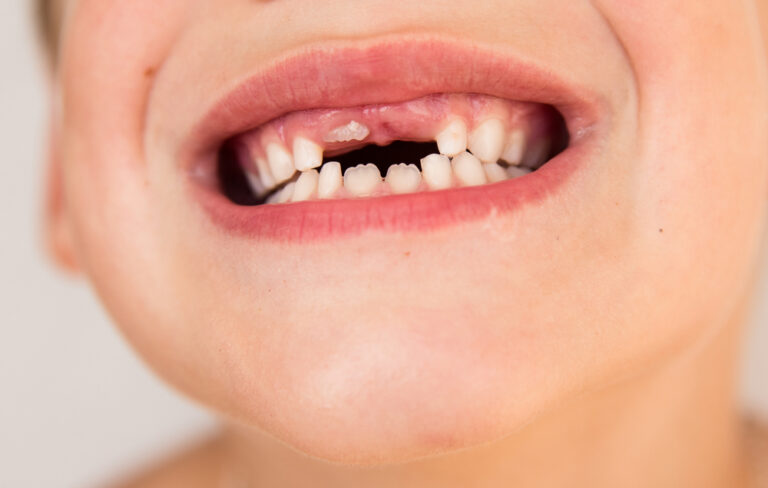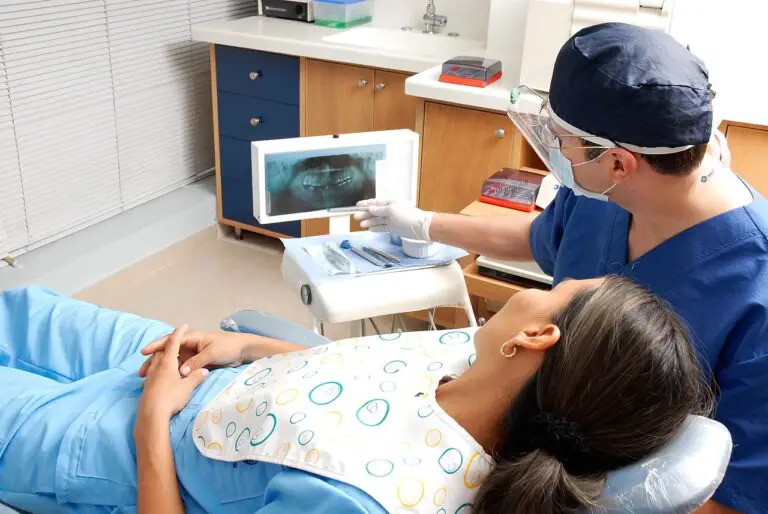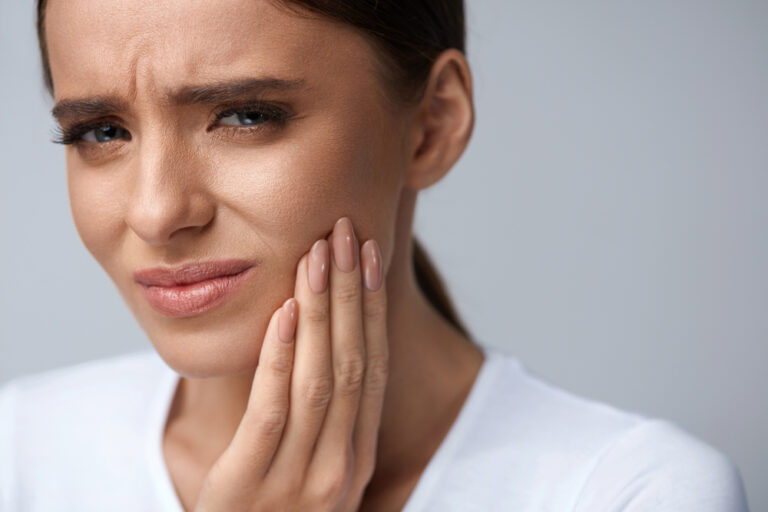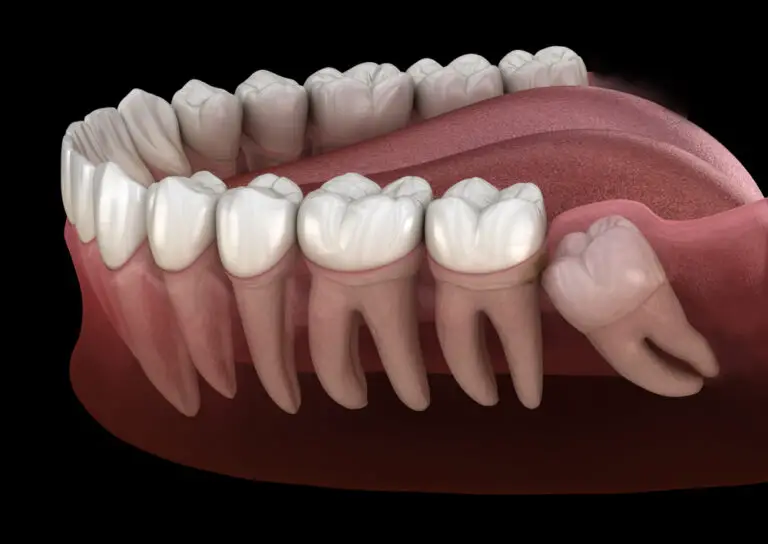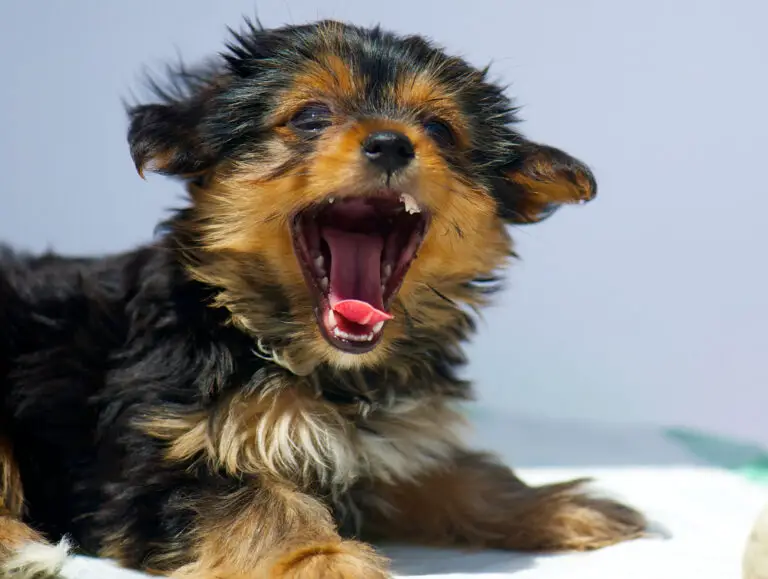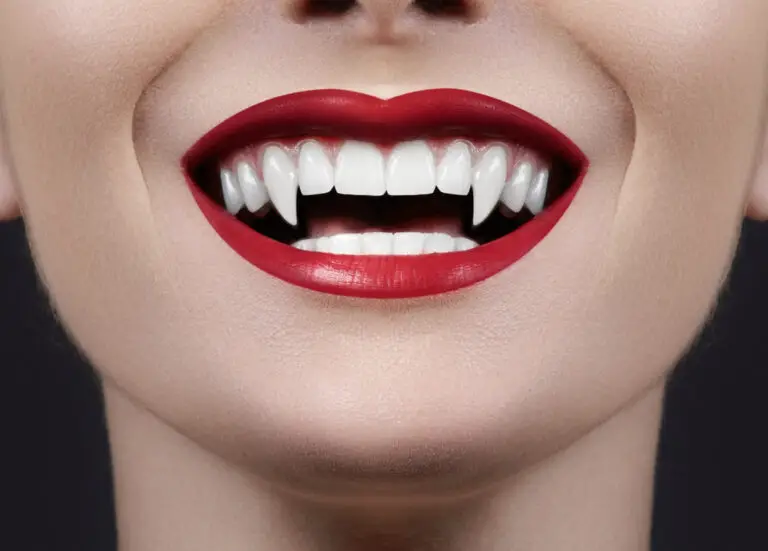Are you wondering how to tell if your cat is experiencing dental problems? It can be difficult to determine if your feline friend is in pain, especially since they are experts at hiding their discomfort. However, there are several signs to watch out for that could indicate an issue with your cat’s teeth.
One of the most common signs of dental problems in cats is bad breath. If your cat’s breath has suddenly become foul, it could be a sign of dental disease. Additionally, if you notice that your cat is drooling excessively, pawing at their mouth, or avoiding food altogether, it may be time to take a closer look at their teeth.
It’s important to remember that dental problems in cats can be serious and even life-threatening if left untreated. By learning how to recognize the signs of dental issues in your cat, you can help ensure that they receive the proper care and treatment they need to stay healthy and happy.
Understanding Your Cat’s Dental Health
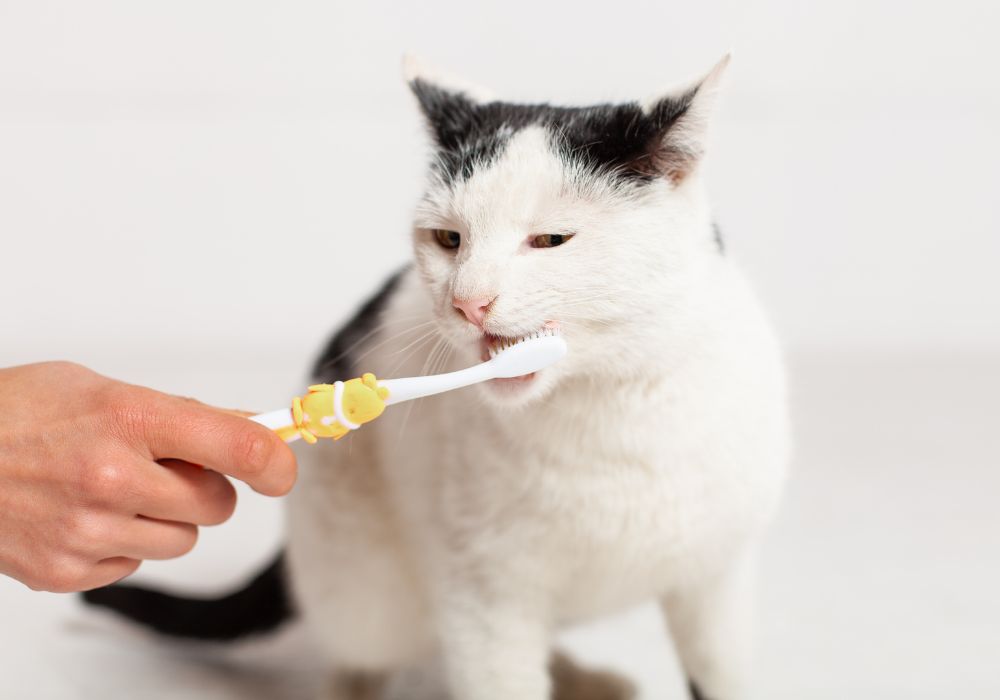
As a cat owner, it is essential to understand your cat’s dental health. Just like humans, cats can suffer from dental problems that can cause discomfort and pain. Dental problems in cats can also lead to other health issues, including heart and kidney diseases.
Here are some things you should know about your cat’s dental health:
Signs of dental problems
It’s essential to know the signs of dental problems in cats. Some common signs include bad breath, inflamed gums, yellow or gray teeth, and reduced appetite. If you notice any of these signs, it’s important to take your cat to the vet for a dental checkup.
Dental cleaning
Regular dental cleaning is crucial for your cat’s dental health. You can use a soft-bristled toothbrush and cat-friendly toothpaste to clean your cat’s teeth. It’s best to start brushing your cat’s teeth when they are young to get them used to the process. If your cat is resistant to brushing, you can use dental treats or toys to help keep their teeth clean.
Diet
Your cat’s diet can also affect their dental health. Feeding your cat a diet of wet food can help keep their teeth clean by reducing the amount of plaque and tartar buildup. You can also provide your cat with dental treats or toys that can help clean their teeth while they chew.
Regular checkups
Regular dental checkups are essential for your cat’s dental health. Your vet can check for any signs of dental problems and recommend treatment if necessary. It’s recommended to schedule a dental checkup for your cat at least once a year.
By understanding your cat’s dental health and taking steps to keep their teeth clean, you can help prevent dental problems and keep your cat healthy and happy.
Common Signs of Dental Problems
If you are concerned about your cat’s dental health, there are some common signs that you can look out for. Here are some of the most common signs of dental problems in cats:
Bad Breath
If your cat has bad breath, it could be a sign of dental disease. Bad breath is caused by the buildup of bacteria in the mouth, and it can be a sign of gingivitis, periodontal disease, or other dental problems.
Difficulty Eating
If your cat is having difficulty eating, it could be a sign of dental problems. Cats with dental disease may have trouble chewing their food, and they may avoid hard or crunchy foods altogether. If your cat is eating less than usual or seems to be in pain when eating, it is important to have their teeth checked by a veterinarian.
Drooling or Dropping Food
If your cat is drooling or dropping food, it could be a sign of dental problems. Cats with dental disease may have trouble swallowing, and they may drool or drop food as a result. If you notice your cat drooling or dropping food, it is important to have their teeth checked by a veterinarian.
Discoloration or Tartar Buildup
Discoloration or tartar buildup on your cat’s teeth could be a sign of dental problems. Tartar buildup is caused by the accumulation of plaque, which can lead to gingivitis, periodontal disease, and other dental problems. If you notice yellow or brown discoloration on your cat’s teeth, it is important to have their teeth checked by a veterinarian.
In summary, if you notice any of these signs in your cat, it is important to have their teeth checked by a veterinarian. Dental problems can be painful and can lead to serious health problems if left untreated, so it is important to take care of your cat’s dental health.
Causes of Dental Problems
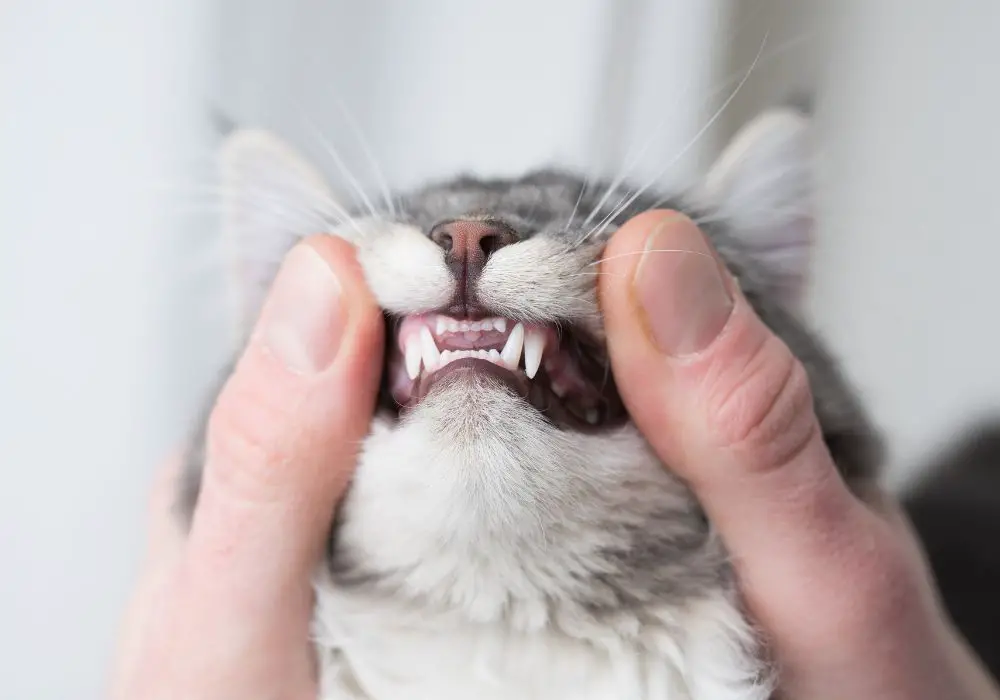
If you want to know if your cat has a problem with his teeth, it’s important to understand what causes dental problems in cats. Here are some of the most common causes of dental problems in cats:
Gum Disease
Gum disease or gingivitis is a common problem in cats. It is caused by a buildup of plaque or bacteria on the teeth, which can lead to inflammation and swelling of the gums. If left untreated, gum disease can progress to periodontitis, which can cause tooth loss and other health problems.
Tooth Resorption
Tooth resorption is a painful condition that occurs when the tooth structure is destroyed and replaced by bone-like tissue. It’s a common problem in cats, and it can be caused by a variety of factors, including genetics, diet, and oral infections. If you notice that your cat is having difficulty eating or appears to be in pain, it’s important to take him to the vet right away.
Mouth Infections
Mouth infections can be caused by a variety of factors, including bacteria, viruses, and fungi. They can cause a range of symptoms, including bad breath, drooling, and difficulty eating. If your cat has a mouth infection, it’s important to take him to the vet right away, as these infections can be serious and even life-threatening in some cases.
By understanding the common causes of dental problems in cats, you can take steps to prevent them from occurring in the first place. Regular dental checkups and cleanings, a healthy diet, and good oral hygiene can all help keep your cat’s teeth healthy and strong.
Preventive Measures
Taking preventive measures can help ensure your cat’s dental health. Here are some measures you can take to help prevent dental problems in your feline friend.
Regular Dental Checkups
Regular dental checkups are important in maintaining your cat’s dental health. It is recommended to take your cat to the vet for a dental checkup at least once a year. During the checkup, the vet will examine your cat’s teeth and gums for any signs of dental issues. If any issues are detected, they can be addressed before they become more serious.
Proper Diet
A proper diet is essential for your cat’s overall health, including their dental health. Feeding your cat a balanced diet that includes essential nutrients can help keep their teeth and gums healthy. Avoid giving your cat too many sugary treats, as they can lead to tooth decay and other dental problems.
Home Dental Care
Home dental care is another important aspect of maintaining your cat’s dental health. Here are some home dental care tips:
- Brush your cat’s teeth regularly using a cat-specific toothbrush and toothpaste.
- Provide your cat with dental treats or toys that can help clean their teeth.
- Use water additives that can help reduce plaque and tartar buildup.
By taking these preventive measures, you can help keep your cat’s teeth and gums healthy and prevent dental problems.
When to Consult a Veterinarian
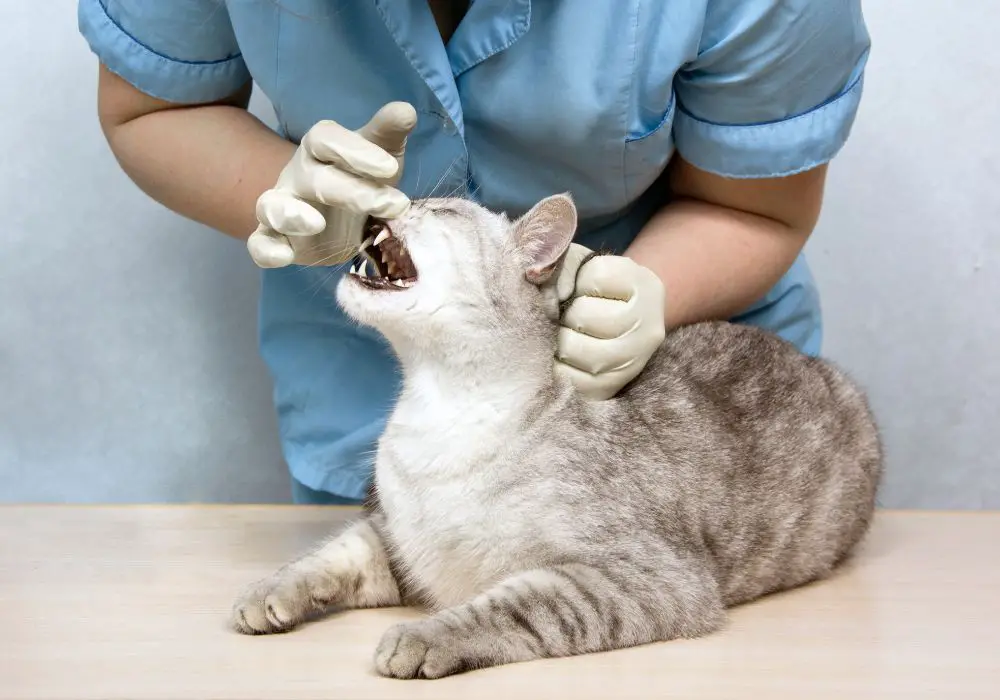
As a cat owner, you should always be aware of your cat’s dental health. Regular dental checkups and cleanings are essential to prevent dental problems. However, even with regular dental care, your cat may develop dental problems that require veterinary attention. Here are some signs that you should consult a veterinarian:
Bad breath
If your cat has bad breath, it could be a sign of dental disease. Bad breath is caused by bacteria in the mouth, which can lead to gum disease, tooth decay, and other dental problems.
Difficulty eating or loss of appetite
If your cat is having difficulty eating or has lost its appetite, it could be a sign of dental problems. Dental disease can cause pain and discomfort, making it difficult for your cat to eat.
Drooling
Excessive drooling can be a sign of dental problems. If your cat is drooling more than usual, it could be a sign of dental disease.
Pawing at the mouth
If your cat is pawing at its mouth, it could be a sign of dental problems. Dental disease can cause pain and discomfort, making your cat paw at its mouth.
Bleeding from the mouth
If your cat is bleeding from the mouth, it could be a sign of dental problems. Dental disease can cause bleeding from the gums or other parts of the mouth.
If you notice any of these signs, you should consult a veterinarian. Your veterinarian can perform a dental exam and recommend the appropriate treatment. Remember, regular dental checkups and cleanings can help prevent dental problems and keep your cat’s teeth healthy.
Frequently Asked Questions
What are some signs that my cat may have dental issues?
If your cat has dental issues, you may notice some of the following signs:
- Bad breath
- Difficulty eating or chewing
- Drooling
- Pawing at the mouth
- Bleeding gums
- Loose or missing teeth
- Yellow or gray teeth
- Inflamed gums
If you notice any of these signs, it’s important to take your cat to the vet for a dental check-up.
How can I tell if my cat is experiencing tooth pain?
It can be difficult to tell if your cat is experiencing tooth pain, but some signs to look out for include:
- Reluctance to eat
- Drooling
- Pawing at the mouth
- Meowing or crying out when eating
- Swollen or bleeding gums
- Bad breath
- Avoiding hard food
If you suspect your cat is experiencing tooth pain, it’s important to take them to the vet for a dental check-up.
What should I do if my cat is drooling excessively?
If your cat is drooling excessively, it could be a sign of dental issues or other health problems. It’s important to take your cat to the vet for a check-up to determine the cause of the excessive drooling.
Why is my cat making weird mouth movements?
If your cat is making weird mouth movements, it could be a sign of dental issues or other health problems. It’s important to take your cat to the vet for a check-up to determine the cause of the mouth movements.
What are some common dental problems in cats?
Some common dental problems in cats include:
- Periodontal disease
- Tooth decay
- Broken or fractured teeth
- Gum disease
- Oral tumors
It’s important to take your cat to the vet for regular dental check-ups to prevent and treat these dental problems.
How often should I take my cat to the vet for dental check-ups?
It’s recommended to take your cat to the vet for dental check-ups at least once a year. However, if your cat has dental issues or is at a higher risk for dental problems, your vet may recommend more frequent check-ups.

